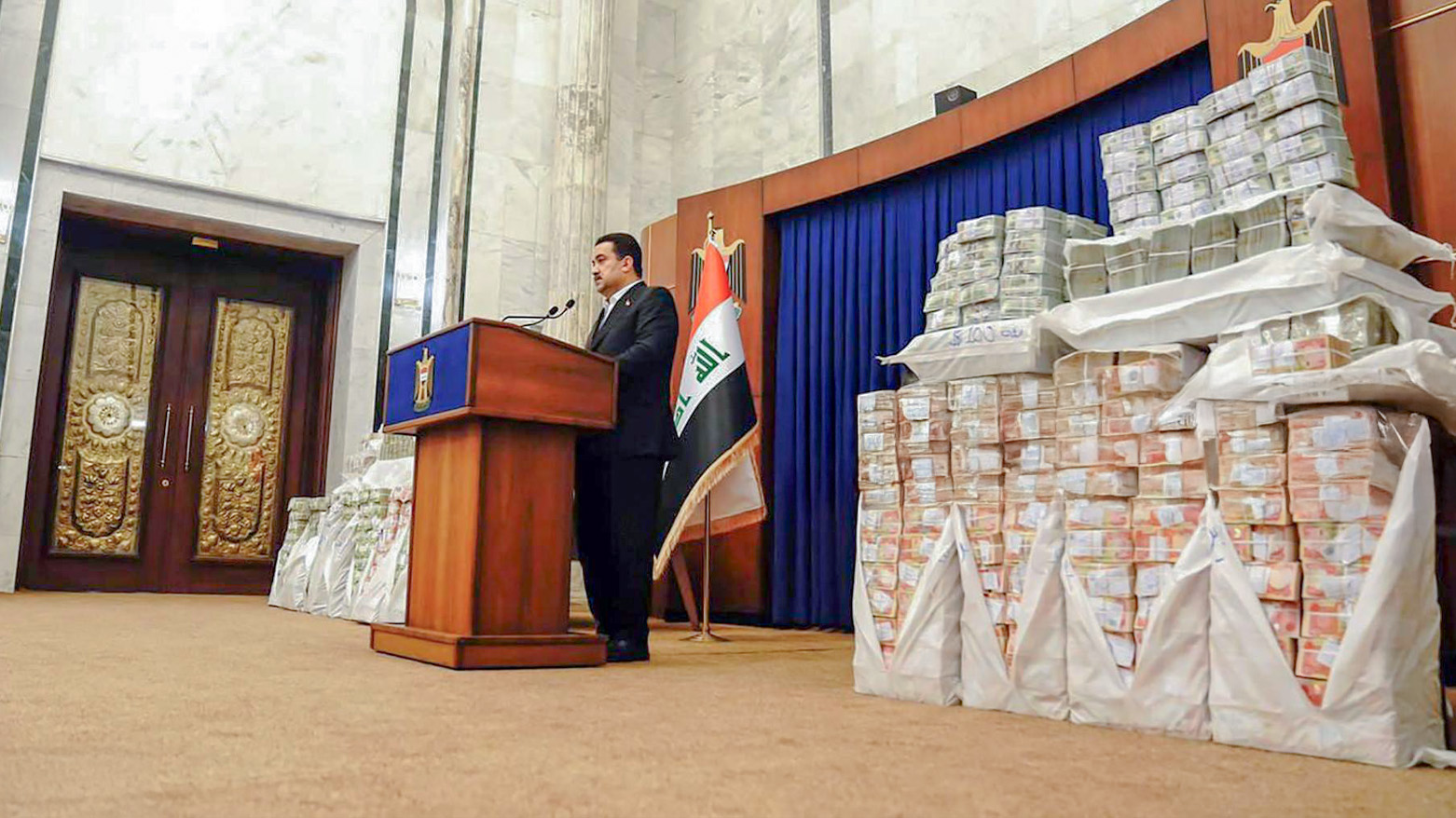Baghdad Court Uncovers Multi-Billion Dinar Corruption in Traffic Directorate
According to Iraq’s Judicial Council, the accused stole over 3.3 billion dinars and a large amount of gold from the General Traffic Directorate in Baghdad.

ERBIL (Kurdistan24) – In a development in Iraq’s ongoing battle against corruption, Baghdad's Rusafa Investigation Court, which specializes in corruption and money laundering cases, has revealed the confessions of four defendants implicated in a large-scale financial theft from the General Traffic Directorate.
The case, which highlights systemic corruption within state institutions, underscores the government's continued efforts to crack down on financial crimes.
According to a statement released by Iraq’s Judicial Council, the accused individuals were found to have stolen over three billion and 300 million Iraqi dinars, alongside a substantial amount of gold, from the General Traffic Directorate.
The stolen assets were recovered in the al-Shaab area of Baghdad. The court’s investigation has revealed that the perpetrators were closely connected to a high-profile suspect still under investigation.
"These defendants are the brothers-in-law of the main suspect, against whom an arrest warrant has been issued on charges of corruption," the statement read, emphasizing that the primary suspect remains at large while legal proceedings continue. Authorities have yet to disclose the full extent of the suspect’s involvement or whether additional individuals are complicit in the scheme.
This case is yet another example of Iraq’s deep-rooted corruption crisis, which has sparked widespread public frustration. Previous reports suggests that Iraqi citizens have voiced growing discontent over government mismanagement and the lack of accountability for corrupt officials.
In recent years, corruption scandals have rocked various sectors, from infrastructure projects to financial institutions, eroding public trust in state governance.
The exposure of corruption within the General Traffic Directorate is part of a broader pattern of financial misconduct in Iraq. Reports of forced bribes for basic services have emerged in Anbar, while high-profile infrastructure failures, such as the collapse of the Topchi Bridge in Baghdad and another in Anbar province, have been linked to mismanagement and poor quality standards due to corrupt contracting practices.
Read More: Topchi bridge collapsing wonders Baghdad residents, corruption, low quality standards
Read More: Collapsed bridge in Anbar province becomes symbol of corruption, mismanagement
The judicial system’s handling of corruption cases has also been scrutinized. According to Shafaq News, Haitham Al-Jubouri, one of the main suspects in Iraq’s infamous “Theft of the Century” scandal, was recently granted amnesty, sparking outrage among lawmakers and the public.
The scandal, involving the disappearance of over three trillion Iraqi dinars ($2.5 billion) from tax trust funds, implicated several high-profile officials and business figures, yet many key suspects have managed to evade full accountability.
The Rusafa Investigation Court’s decisive action in the Traffic Directorate case signals an attempt to curb corruption at various levels of government. However, Iraq’s broader corruption problem remains a persistent challenge, with reports of journalists being detained and tortured in Dhi Qar for exposing government misdeeds.
Read More: Journalists Detained and Tortured in Dhi Qar for Reporting Corruption and Protests
This crackdown on the press has raised concerns over transparency and the ability of civil society to hold officials accountable.
Despite government pledges to tackle financial crimes, major corruption cases continue to resurface. Iraq’s railway sector, for instance, has been engulfed in a $22 billion corruption scandal, fueling public outrage over the misallocation of funds meant for national development projects.
Read More: Iraq engulfed in $22 billion corruption scandal in railway sector, public outrage grows
Similarly, the issuance of arrest warrants in connection to the “Theft of the Century” case has failed to result in meaningful convictions, with many suspects receiving reduced sentences or benefiting from legal loopholes.
Read More: Embezzlement of century sounds worse amid ongoing investigation
The case of the stolen funds from the General Traffic Directorate serves as a reminder of the ongoing struggle to implement transparent governance and restore public trust in state institutions. As the investigation unfolds, judicial authorities are expected to pursue all legal avenues to ensure that those involved face justice.
However, with the backdrop of previous high-profile corruption cases failing to result in substantial reform, Iraq’s long-term ability to combat financial crimes remains uncertain. Further updates from the Rusafa Investigation Court will provide insight into whether additional suspects or broader corruption networks are implicated in this latest financial scandal.